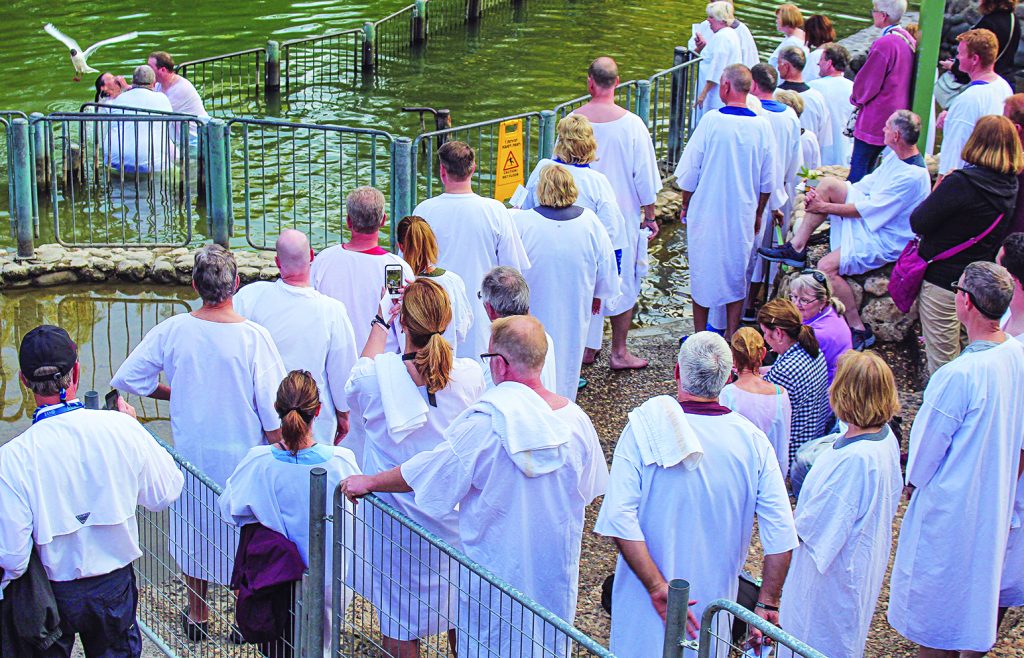If you want an in-depth explanation of why “correlation does not imply causation,” you’ll need a more educated source than me.
But here’s what I will say about NPR’s weekend report linking evangelical support of President Trump with rising tourism numbers in Israel: Evidence to support that storyline seems a little squishy to me.
Or maybe a whole lot squishy. I’ll explain in a moment. But first, here’s how NPR sets the scene:
President Trump's evident desire to identify who's most "loyal" to Israel has a clear winner: U.S. evangelicals.
Not only do they outpace U.S. Jews in their support for policies that favor the Israeli government, but U.S. evangelicals have also become the fastest-growing sector of the Israeli tourism market. The developments may even be related.
"I'd say close to 100% of our travelers come back extremely pro-Israel in their political views," says Andy Cook, a pastor who leads evangelical tours of the Holy Land twice a year.
OK, that description of evangelicals as “the fastest-growing sector of the Israeli tourism market” certainly sounds authoritative. However, unless I missed it, NPR doesn’t provide any internet links or other hard data to back up that characterization.
Does actual data exist?
Or is that description attributable to a tourism official eager to tout evangelical travel to a reporter clearly wanting to make that connection?
Let’s read a little more:
Tourist travel to Israel is growing about 10% a year, according to Eyal Carlin, the incoming North America director of the Israeli Tourism Ministry, with evangelical Christians a growing share of U.S. visitors.
"More and more companies are entering each year with faith-based or evangelical packages," Carlin says. "The evangelical world is going back to its roots."
The trend coincides with growing evangelical support for Trump's embrace of Israeli Prime Minister Benjamin Netanyahu and his hard-line policies, even as U.S. Jews have grown more critical.
Again, NPR draws some pretty straight lines (“a growing share of U.S. visitors” and “trend coincides with growing evangelical support for Trump’s embrace”) with no actual data to back it up, unless I somehow missed it. If I did, by all means, correct me in the comments section.
From there, NPR focuses on anecdotes and quotes evangelicals who enjoy visiting Israel. And I’m not suggesting at all that that’s not the case (I wrote about it myself after a reporting trip to Israel earlier this year). But my question is whether Trump is really inspiring more evangelicals to visit israel or if they’ve always wanted to “walk where Jesus walked.”
Those opening paragraphs blockquoted above are the full extent of NPR’s attempt to connect the dots to a trend that the audience is supposed to accept as fact.
Again, I’ll repeat: It all seems a bit squishy to me. And convenient, given the timing of the piece coinciding with recent major news concerning Trump and U.S. Jews.
Just to play devil’s advocate, could any other factors besides Trump be at play in rising tourism numbers in Israel? Such as, perhaps, the relative peace in Israel in recent years?
As for other possible reasons, Travel Weekly has noted:
Myriad factors have contributed to Israel’s success, but one thing that travel advisors and suppliers seem to agree on is that the Israel Ministry of Tourism deserves much of the credit. The ministry shifted its strategy in recent years from targeting only religious groups — 61% of Israel tourists self-identify as Christian — to marketing to adventure travelers, the LGBTQ community and foodies, among other niches.
And The Times of Israel has reported:
The ministry said the increase is due in part to a NIS 350 million ($93 million) marketing campaign promoting Israel as a travel destination around the world, including, in the US, Germany, Russia, Italy, England, China, Ukraine, Brazil, and the Philippines. The investment yielded an average increase of 13% in the number of tourists from those countries, said the ministry.
NPR might be surprised to learn that a Jerusalem Post story last year on rising tourism in Israel did not include the terms “evangelical” or “Trump.”
Life is complicated. Correlation does not imply causation. And it seems that more factors than the U.S. president are at play when it comes to why more people are visiting the Jewish state.

